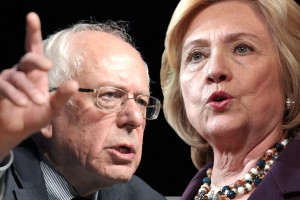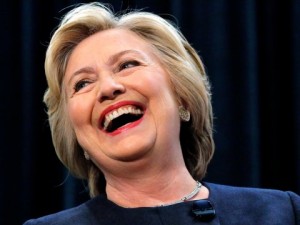
People understandably ask: "What good can the candidate contracts do? Can they really make a difference?"
The answer to that comes in two pieces.
First, anything is only as good as its application. That is, a hammer is only as useful if you manage to hit the nail and driving the nail is part of building something that is important and positive, like a new house. Or a twenty-foot high wall on the Mexican border (just kidding!).
The candidate contract has to be implemented properly, it has to be wielded effectively. I've described in Part 7 how it can be used to demonize the traitors and promote the true supporters of representative democracy. Once the candidate contract strategy is in play, hopefully on a national level where it achieves some critical mass and becomes "news", it literally can set a new standard for the way candidates are assessed in terms of worthiness for public office -- precisely how we determine if we are going to vote for them or not.
It can do this because -- and here is the second piece of my answer -- it accomplishes something which so far has been elusive, and intentionally so.
It gives us a bulletproof method for determining where a candidate stands on issues.
No more empty campaign rhetoric. No more vague language. No more double speak.
It's all in black-and-white.
Let me demonstrate this and in doing so answer another question I've often gotten . . .
"Can this work with presidential candidates?"
TPP and its evil step-sisters, TPIP and TISA, are the most heinous "trade agreements" in our history. The majority of American citizens are just starting to wake up to the horrible consequences if these agreements.
Both Bernie Sanders and Hillary Clinton have been confronted as to where they stand on TPP. Bernie Sanders has unequivocally come out against it. He has been consistent on this for as long as TPP reared its ugly head. On the other hand, Ms. Hillary as Secretary of State clearly supported and promoted it. But now she is waffling, introducing vague and manifestly misleading language to deflect potential supporters from reviewing her record or from drawing the obvious conclusion: As a corporatist shill she is loyal to Wall Street, she is loyal to the big banks, she is loyal to the trans-national corporate interests behind this nefarious trade agreement.
Initially, Hillary said "This TPP sets the gold standard in trade agreements to open free, transparent, fair trade, the kind of environment that has the rule of law and a level playing field." More recently here is what the mistress-of-the-duplicitous said: "I waited until it had actually been negotiated because I did want to give the benefit of the doubt to the (Obama) administration. Once I saw what the outcome was, I opposed it."
This, of course, resulted in all sorts of analysis and debate on where she really stands.
I say: Why don't we just cut through this silly waste of time and energy and determine with absolute certainty where Ms. Clinton and Mr. Sanders come down on TPP, an issue which dramatically shapes the future of international commerce and geopolitics for generations to come?
Let me offer a candidate contract:
Bernie Sanders, consistent with his voting record and public pronouncements, would sign this in a heartbeat.

I can only speculate, but I believe Hillary would laugh, roll her eyes, do that Hillary "thing" she does so well, and brush it aside.
Frankly, there is no way she could sign it. If she did, she couldn't do the job her corporate masters hired her to do.
And that's exactly how the candidate contracts work.
Now we know exactly what we need to know.
It's in black-and-white. The choice is clear.
Now we know how to vote.
Apply this methodology issue-by-issue, candidate-by-candidate, and suddenly the smoke and mirrors are gone. The voting public can make informed decisions about who they want representing them in Washington DC, in both Congress and the White House.
[ This originated at the author's personal website . . . http://jdrachel.com ]
Putting Boots (Birkenstocks) on the Ground: Part VIII